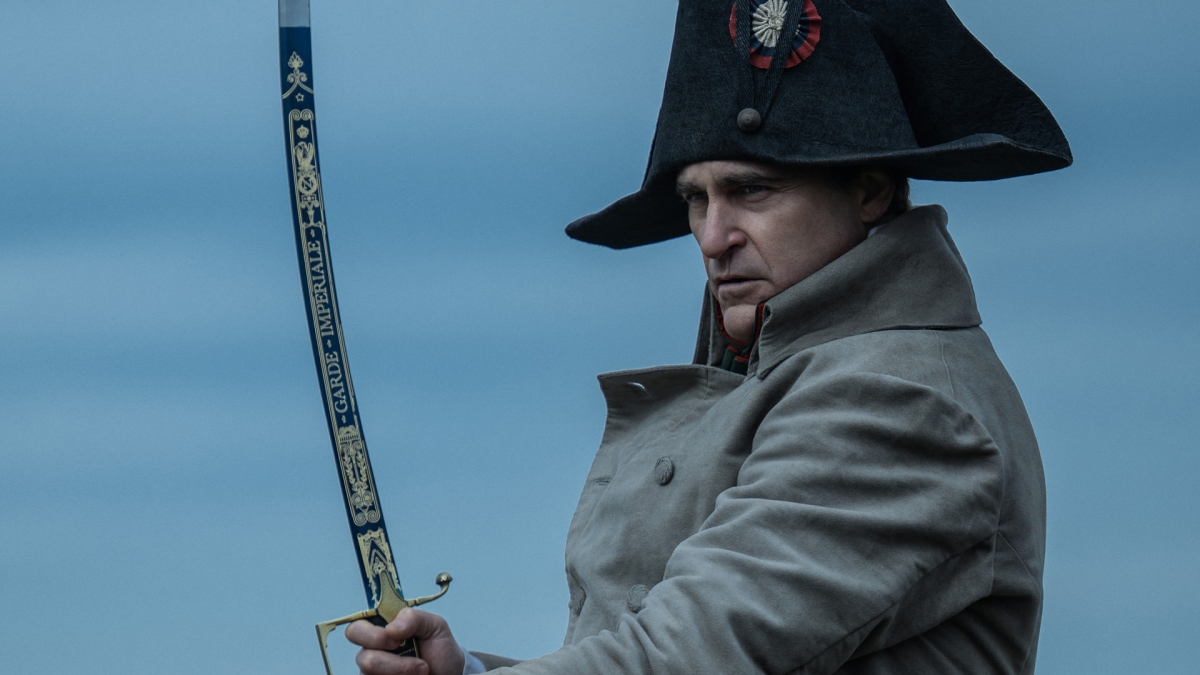
In the 18th and 19th centuries, before artist Joaquin Phoenix was born, France went through this wild period. More than a romantic movie setting or the last bastion of hope for nicotine addicts who wanted to smoke in public, the nation was a dominant military force on the world stage, thanks in large part to Napoleon Bonaparte.
If you’re genuinely interested in the Emperor of France, there are dozens of terrific books on the guy – David Chandler’s The Campaigns of Napoleon and Frank McLynn’s Napoleon: A Biography are great for a deep dive. That said, if you’re looking for a quick and dirty introduction to the man with the confidence to wear the hat pictured above? Read on.
Where was Napoleon born?
On August 15, 1769, Napoleon Bonaparte was born in Corsica, which, at the time, still had that newly-ceded-to-France smell. The island was coming off of a few centuries under Genoan rule and a 15 year stint as a post-revolution independent state when the French marched in and called dibs, which the French were wont to do at the time. Bonaparte’s parents didn’t cotton to this development, and they fought against their soon-to-be conquerors – his 19-year-old mom, pregnant with him at the time, took up arms. Napoleon would later state that “The future destiny of the child is always the work of the mother,” but did he ever lay down musket fire while fighting morning sickness?
Imperialism is a tough nut, and Corsica fell under French rule, with Napoleon’s dad eventually taking a job as a Corsican representative to France under the rule of Louis XVI, AKA “The Last King of France.” That nickname will be important later.
Was Napoleon a dictator?
Yes, but he took the scenic route to get there. After taking power in 1799 via military coup, France’s new Consulate became what University of New South Wales historian Martyn Lyons called “dictatorship by plebiscite,” which is fancy Dan-speak for “autocracy with extra steps.” A cartoonishly rigged election saw Napoleon’s new constitution voted in with a 99.9% approval rate. Napoleon became First Consul, a position that saw him making decisions that the people beneath him voted “yes” to. It was a cozy setup that solidified itself as permanent during a 1802 ratification with a suspiciously awesome 99.7% approval rate.
In 1804, Napoleon said the quiet part out loud and was “elected” Emperor by another just-shy-of-100% vote. While he almost definitely didn’t actually get 99 out of 100 eligible voters to see things his way, he did, in all likelihood, have the majority of the country on his side. The French had been through a lot in the previous few years, what with the revolutions and the coups and the living through Les Miserables of it all. Sometimes, you just want someone to say “I’m in charge.”
Where was Napoleon exiled to?
Then, after a while, you don’t. France did pretty well for itself for a while, expanding majestically into eastern Europe and claiming a significant amount of the continent as dependent states through seriously more wars than you’re probably imagining. For a decade, Napoleon became more and more full of himself, until he fell prey to the burrowing, parasitic thought that eventually ruins most European dictators: “I should invade Russia.”
Following an embarrassing series of losses that included the citizens of Moscow burning their city to keep it from being taken, Napoleon discovered that he’d accidentally made a lot of people angry with his “I’ve been good, I should treat myself to a nice continent” attitude. A Coalition of nations including Great Britain, Austria, Russia, and Prussia brought France to its knees by 1814, and Napoleon was deposed.
Allowed to keep his title and that’s about all, Emperor Napoleon I was sent to Elba, the Mediterranean equivalent of that island where Luke Skywalker drinks lizard milk and sulks in The Last Jedi, but with more future loyalists to Napoleon and fewer porgs. Dictators gonna dictate, and he spent his time there overhauling the island’s system of government and organizing a military.
Early the next year, Napoleon headed back to France, which was having a tough time reacclimating to monarchic rule. On March 20, 1815, he took back control of Paris. All of those countries from before? The ones that formed a military supergroup and sent him away the last time? They didn’t take kindly to this development, and, as ABBA would one day recount with moderate accuracy, decimated his forces at the Battle of Waterloo.
Napoleon abdicated in June of the same year, and tried the whole “exile” thing again, this time on Saint Helena, an island half the size of the first one, located way, way, way off the western coast of Africa. There, he played cards and probably accidentally ingested a lot of arsenic through the wallpaper until his death at age 51 on May 5, 1821.
And if all of that isn’t depressing enough for you, look up the reign of his nephew, Napoleon III. Now there’s a movie.
from Movie News | Movie Reviews | Movie Trailers https://ift.tt/0qGZEhA



0 comments: